We all know that continuous learning is what drives success and innovation. Books are one of the most accessible and proven ways to gain knowledge.
I am an avid reader of business, motivation, and financial books and wanted to reach out to other leaders in business to find out what they found to be the most impactful books that influenced their leadership styles.
These books range from motivation to sales, to management, and I know that all of them contain at least one or two golden nuggets that you can take back to your office or business.
The Challenger Sale
Author: Matthew Dixon and Brent Adamson
Matt Wolach, Managing Partner, Xsellus Sales Coaching
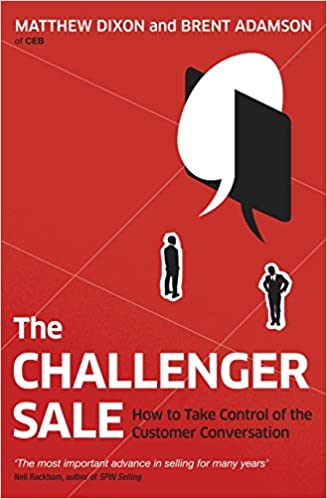
What the book is about: The book is a result of a study of thousands of sales reps and how they interact with their prospects. The findings were surprising – the most successful sales reps were the Challengers – the ones who didn’t play by the customer’s rules but created their own process and guided the prospect expertly through it. The key point is that a salesperson should follow the three T’s: Teach the prospect, Tailor the pitch to them, and Take control of the conversation.
what about it impacted you and how it impacted you or your business: Previous to this book, I tried to be a relationship builder in my sales. But upon reading this, I learned that the Relationship Builder is the worst type of sales rep with the lowest close rates. I completely shifted my mindset to be a Challenger, which fit my personality much more and I instantly went from average to the top of the charts. That one shift made all the difference.
The Fearless Organization
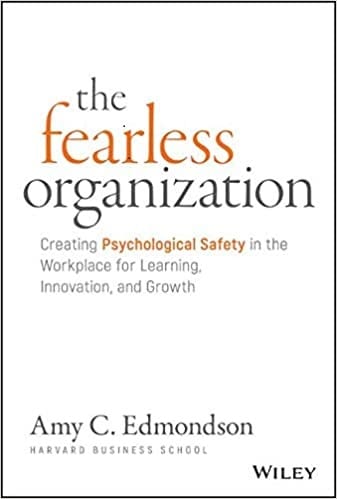
Author: Amy Edmondson
Cameron Postelwait, Director of Marketing, BlueEQ
The Fearless Organization has had the greatest impact on my career. For anyone whose goal is high employee engagement, productivity, and innovation, this book explains psychological safety. Everything that researchers understand about high team performance is underpinned by psychological safety, which is a work culture where it’s safe to give feedback, speak up, learn from mistakes, push back against the status quo, including everyone, and take the necessary risks to innovate without interpersonal risk. It’s true that a lot can get done in a culture where people just clock in and put their heads down and work, but in competitive industries, it’s the culture that encourages employees to give discretionary effort and foster this kind of organizational trust that rises above the competition.
Amy Edmondson’s work originated from studying high and low performing teams in a healthcare setting. When she started her research, she hadn’t really heard of the concept of psychological safety and wasn’t expecting to come to that conclusion. Over several years she gathered data on all aspects of the teams she was following including education levels, roles, specialties, technical acumen, etc. She found that the teams with the highest levels of psychological safety reported more mistakes, were able to learn and change from those mistakes, and over time, improve the care of their patients with better improvement numbers and lower numbers of lawsuits. Those teams with low psychological safety where leaders (usually physicians) did not tolerate feedback or corrective suggestions from their nurses and staff tended to downplay or hide mistakes, and over time had the lowest patient satisfaction scores and tended to deal with more lawsuits.
Only the Paranoid Survive
Author: Andrew S. Grove
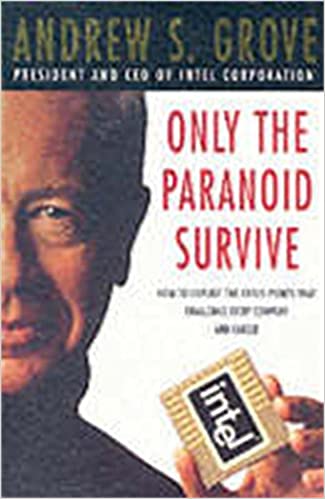
Jason Patel, Founder, Transizion
This incredible book is all about recognizing and addressing threats to your business. As a founder, this book as shaped how I lead, because I want to know all the existential threats to our business and what our weaknesses are. The book also does a great job of explaining how to pivot, evaluate your goals, and making sure you hit objectives when making changes.
You never want to become complacent – the book explains why and also delves into Andrew’s time as the leader of Intel. The man is a force of nature.
Additionally, the book has influenced my management to become more self-competition-focused, in that I want to make sure we are better than we were yesterday and last week. What this means is that we’re always gauging our metrics and, just as important, measuring and checking to the health and morale of our team. *Only the Paranoid Survive *has helped teach me to never rest of my laurels, that the successes of yesterday are just that…a now-distant memory. And, all the successes of tomorrow are just that, a hope we need to build a bridge to.
Finally, as I train up and install managers in our company, the book has reminded me to ensure that we work as one unit, focused like a group of soldiers who are trying to achieve one goal. Their sense of paranoia should be underscored by their being on the lookout, too. I want them to feel a sense of ownership of the company and its successes.
Happiness Advantage
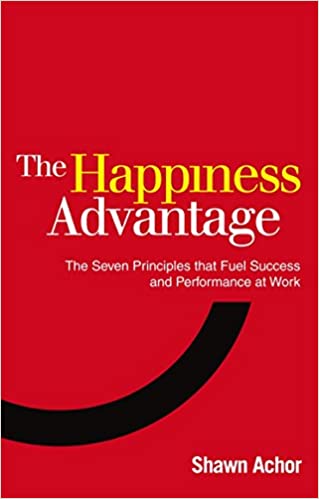
Author: Shawn Achor
Ineke McMahon, Path to Promotion
One of my old bosses and mentors was an avid reader and used to give me a new business book to read almost every week! Some of them I labored through and some were an absolute pleasure to read. This one was possibly my favorite. It’s A must-read for everyone trying to excel in a world of increasing workloads, stress, and negativity.
The Happiness Advantage, at its core, is about how to reap the benefits of a happier and more positive mind-set to achieve the extraordinary in our work and in our lives. Shawn himself studied psychology at Harvard and founded Goodthink Inc and The Institute for Applied Positive Research. He is one of the most popular TED talkers, so even though at this time there is PLENTY of time to read a book – maybe start by watching some of his TEDx talks. They’re great.
The premise of the book is that we are taught incorrectly – we are told when I get a great job, or get married, or lose weight, then I’ll be happy. Actually, positive brains have a biological advantage over brains that are neutral or negative and The Happiness Advantage teaches us how to retrain our brains to capitalize on positivity and improve our productivity and performance. One of these is to express three things that you are grateful for each day. Doing these starts to train our brain to look for positive things throughout the day – so it’s a great way to start the daily huddle!
Extreme Ownership: How U.S. Navy SEALs Lead and Win
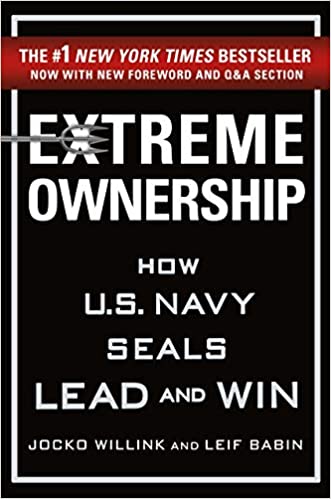
Author: Jocko Willink
Shelley Stevens, Owner, Beyond Pennies
In Extreme Ownership, the author effectively uses wartime examples of leadership situations from his experience as a Navy Seal, and applies the concepts to business situations. The lessons are thought-provoking and insightful, and it’s helped me become the kind of leader I would want to work for. I read Extreme Ownership a couple of years ago. At the time, the company I was working for was acquired by a large corporation. We believe they were keeping our team in place, but due to external politics, things went downhill fast, and my entire department was laid off. As the head of the department, I felt responsible for the layoffs of my team.
This book reinforced to me that as the CEO, Director, or head of a team, we must be willing to take complete ownership for the success or failure of our team. When you feel responsible for your team, you treat them differently. In our final six months with the company, I took it upon myself to help them update resumes, meet with hiring managers, and give them every opportunity to have a job ready to go to when our final day arrived.
In Extreme Ownership, the author effectively uses wartime examples of leadership situations from his experience as a Navy Seal, and applies the concepts to business situations. The book has an organized structure, and each chapter presents a different lesson. The lessons are thought-provoking and insightful, and helped me become the kind of leader I would want to
work for. As Jocko is known to say, there are no bad teams; just bad leaders.
This book will inspire and challenge you — and if you’re willing, it will change you!
The Infinite Game
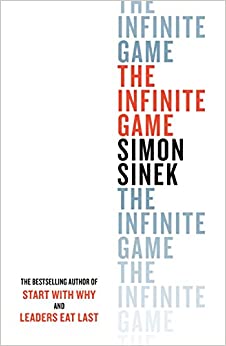
Author: Simon Sinek
Kirsten Hopstaken, Founder, Gybo Marketing
As an avid reader, I love reading books that can advance my career and leadership role. Simon Sinek started the series with his TED talk “Everything starts with why”, which was enormous impactful. Why do I want to start a business and why would people want to work with me? Without an answer to these 2 questions, there is no ‘just cause’ and you are just like any other, no different.
His book: The Infinite Game is my favorite. This book continues on the above idea and brings it into the role of management and teambuilding. Using infinite strategies; where there are no winners and losers, the goal becomes to keep the game going and get better along the way. Advancement is made by trust, continuous learning, being flexible, and displaying the courage to lead. This is also a fun book to read because it is filled with neat examples to go along with Sinek’s wonderful ideas.
I am not affiliated with Simon Sinek, but the ideas are inspiring and made me realize that companies with a ‘just cause’ have the best chance of success, because they serve a purpose and they build strong, motivated teams based on trust. I am trying to lead my team with an infinite mindset and see the results. They are motivated and we all know: together we are stronger. We are a digital marketing agency and client satisfaction is #1, team spirit is #2 in that order. I know that I have found that ‘just cause’ of the agency. It is: “helping our clients be successful” and that goes far beyond making money since that can never be the final goal.
ReWork: Change the Way You Work Forever
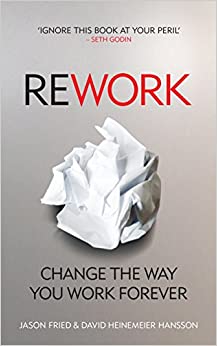
Author: Jason Fried
Christopher Prasad, Marketing Manager, JookSMS
Although there is no specified style to Rework, there is a method and style. The method is to nothing for granted but to put all to a thoroughly pragmatic test. Rework is about bitesize snippets of style rather than depth, monologue management advice.
It helped encourage me to practice rather than theorize and mull ideas over. It motivated me to challenge the status quo and go with what I thought was right, rather than what other people always do.
It overhauled my hiring ethos, the authors decried the worth of resumes and the usefulness of anything over six months of experience. From this, I managed to whittle down all the ‘promising’ resumes I received to a much more manageable level, and my hire successes rose notable.
It filled my mind with a ton of feasible ideas to try out in my own business, even encouraging me to pick a fight with the biggest brands in my industry.
Rework is an ideal read for business owners and high-level managers. Whether on the rise, or a new business.
If your business is stuck in a rut this book is a get out of jail free read. You need to change the company, but you don’t know-how. Reading this book will quickly identify what you’re doing wrong and alert you to how to put it right, almost immediately.
It is a little thin on detail but the advice is golden. The whole ethos of the book is think less, action more.
Steve Jobs

Author: Walter Issacson.
Dorian Clark, Group 82 Media
Given that the book was written right before his passing, you are able to get a real-time look at the reflection Jobs’ went through about his personal life and his career. Jobs was adopted and not a member of the socially elite. He wasn’t a computer programmer. He was eccentric, rude and essentially a deadbeat father to his eldest daughter, Lisa. But, he was a visionary who saw things before everyone else and he went with his intuition no matter what. Money wasn’t his primary objective, leaving an impact on the world was. And that showed when he left Apple to start Pixar and even how he deals with his cancer diagnosis.
Being a first-generation college graduate of Indiana University, I’ve never been a part of the socially elite. I didn’t come from money nor did my friends. Everything I built with Group 82 Media has been from the ground up and going with my intuition. Seeing trends in business and social media marketing, doubling down on them before most people did and speaking to our diverse audience in a language they understand. Jobs was 100% himself and so am I. This is my business and I will live or die doing it my way. Most people reject that notion, I embrace it. My visions for Group 82 are bigger than right now and I move with that in mind. This book planted the seed in me that it’s ok to be the only person who sees what you see.
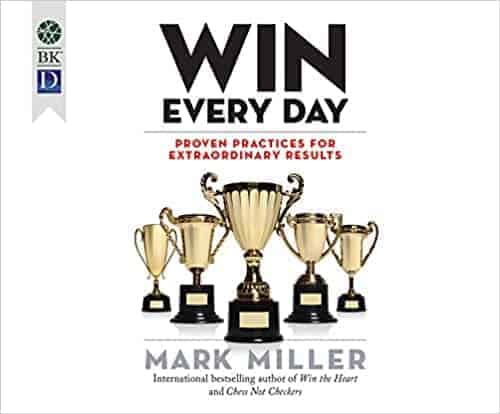
Win Every Day: Proven Practices for Extraordinary Results
Author: Mark Miller
John Stevenson, Founder/CEO, Top VPN Canada
The beauty of Mark Miller’s book is that his principles not only embrace the aspect of leadership in business but leadership in all other professions – big and small.
This is the last book of Mark’s High Performance Series that emphasizes that mastery of your job is the key to succeed in business by providing the basics of successful leadership, and how you can execute these seamlessly into your daily life. These principles do not come to readers in the form of a typical How-To book. What makes this title stand out is that these essential lessons are written in the guise of relatable storytelling that makes you marvel at the fact that you are reading a business book.
Thank you for reading my insights on this amazing book, Justin. I would love to know what others think about it, and I look forward to reading your final article.
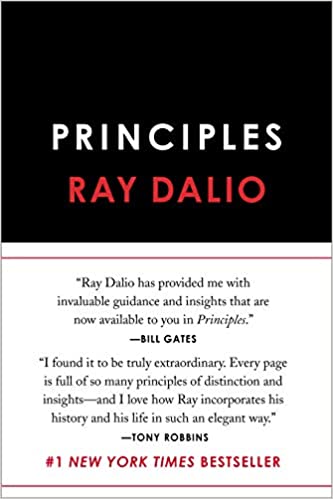
Principles: Life andWork”
Author: Ray Dalio
Angela Vonarkh, TheWordPoint
Ray is the founder of one of the most successful hedge funds in the world. In life, he often had to make difficult decisions, go against public opinion and market position. In his book, Dalio talks about a system of principles, both personal and professional, that helped him succeed. In fact, this is a systematic approach to any life decision that the author has developed over the years.
The book is incredibly motivating- I started reading it on vacation and finished in just two days. It helped me increase my personal effectiveness and overall simplify my life. One of the principles that I began to use after reading the book is to constantly analyze my mistakes and weaknesses. According to the author, failure gives a person much greater potential for internal growth than success. So, it is very important not to brush off the pain that we experience in the event of failure, but be sure to concentrate on it, realize it, and live on.
In business, often not everything goes the way you want, but it is far from always possible to find the time or desire for reflection. For myself, I made it a rule every evening to think over the events of the past day, analyze why something went wrong and how to improve it. The book rarely contains extensive lyrical digressions. In fact, from the very first pages, this is a real guide to action that the reader can immediately put into practice.
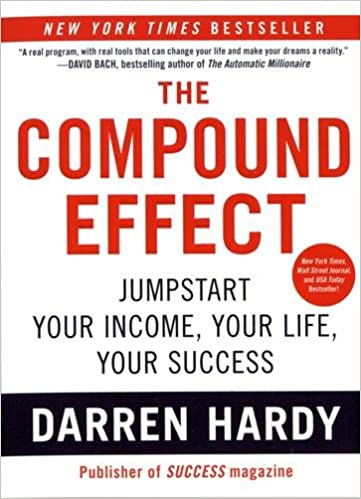
The compound effect
Author: Darren Hardy
Richa Pathak, Founder & Editor, SEM Updates
What the book is about and what about the book made such an impact on you and how that has helped your business or career
The book – The compound effect, talks about the small efforts we make each day and how they multiply our efforts and build our career and business in the long run.
When Darren mentioned the difference between the person with the wrong goals and the person with the right ones. How differently they grow based on the small routine changes they made.
So, I started waking up a little earlier than my regular time and used that time to plan my day and make a list of the top 3 things I need to accomplish today. I maintained a journal to mark the progress.
My goal was to make 1% progress each day by making an insignificant change in my daily routine. So, I focused on the important aspects of my day and business when I knew it will create a big impact on my business. I started writing more and published more articles for my blog. I have started to notice a good viewership and audience response. I started increasing the frequency of my posts from once a week to twice a week as I got more time by organizing my day.
I have understood how bad it could get if I reduce the progress of 1% by each day. The situation could get worst in that scenario.
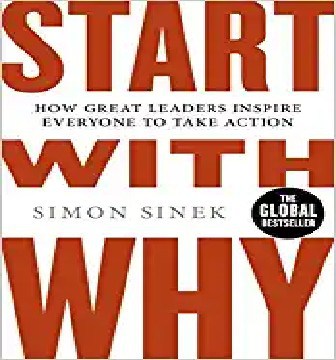
Start with Why
Author: Simon Sinek.
Domantas Gudeliauskas, Marketing Manager, Zyro
While it doesn’t get into specific tactics, it does a great job of settingup your thought process to be a lot more critical and productive. Start with Why focuses on the concept that’s present in its name, asking why? It’s a great case study on when you need to stress this question enough, how far do you need to dig down to be productive, and how to removebiases.
If you value data-driven decisions (and let’s face it, you definitely should), Start with Why is going to help make your thought process and workflow much more efficient. I request all of my employees to read this book but will admit that managers specifically will benefit from it the most.
Decision-makers, leaders, and managers of all niches will definitely find valuable takeaways for how to question their decision making constructively, and how to communicate and debate with subordinates.
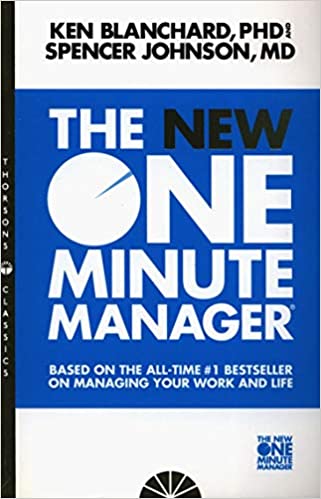
The New One Minute Manager
Authors: Ken Blanchard and Spencer Johnson
Bailey Hahn, SEM Strategist, Summit Digital Marketing
Why: I recently started a new role at Summit Digital Marketing where I am now managing a team to help complete all the things that were once solely on my plate. I was having trouble giving up control of the tasks and workflows I had worked so hard to help create, yet I was overwhelmed with all of the new responsibilities of having to manage a new team.
The New One Minute Manager has helped me give control and empower my team so that they can manage themselves and come to me when they need advice or guidance. It has been an easier transition for me (and my team!) since I read this book! I highly recommend for any young professionals looking to best manage their time and the time of those under them.
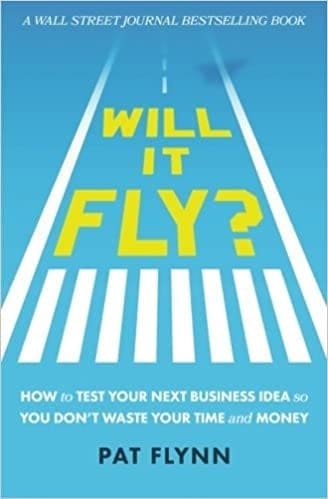
Will It Fly?
Author: Pat Flynn
Christian Antonoff, Entrepreneur, Content Strategist, https://exceltemplate.net/
Before launching my own business, I had serious doubts if I would make it,if I would get enough clients, and if I would be able to match expectations. I seriously doubted g if I had it in myself to be my own bossand be successful. Then I read Will It Fly? by Pat Flynn, which asked three simple questions: would I provide value?; could I be successful; and was this the right thing for me?
The above questions gave me a better understanding of where I was and where I needed to be to make a profit. The book helped me chart a plan on how to build up my company from the ground up, find clients, and convince them that my services are worth their time and money.
How to Win Friends and Influence People
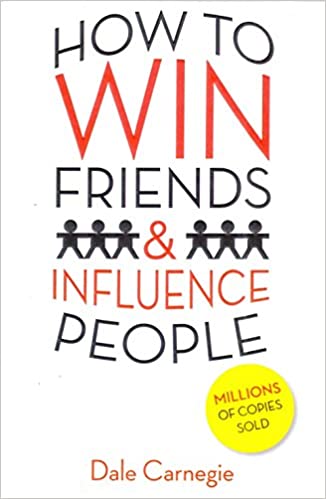
Author: Dale Carnegie
Scot J Chrisman, founder and CEO, THE MEDIA HOUSE
This book has never ceased to amaze me. It’s been eons since this book has been published but it’s still relevant till today. What I learned from this book is that people matter, the connection that we have with people is what will make us successful in life. We have to treat the janitor and the CEO in the same manner which is with dignity and respect. I knew early on that people are the backbone of every business. And if you treat people right your business will run on its own.
And another tip this book taught me is that people want to be called by their names. It’s music to their ears. Just calling people by name makes them feel important. And they’re inclined to listen more to what you’re saying.
Another thing I learned in this book is how to listen. When we listen, we see things from the other person’s perspective. We become aware of their situation and thus make better business choices with regards to how we could adjust to that person’s needs to make them productive. There nothing wrong with giving in to people’s requests if it makes them better workers.
Lastly, I learned how to avoid arguments. Arguments are just a waste of time. I’ve learned that you have to let people cool off before talking to them. That’s why if I know there’s a hot topic that my employees want to discuss, I ask them to sleep on it and think about the issue that’s bothering them. I think this trick works, because in the morning when we come to discuss we come up with great ideas and solutions to their issue.
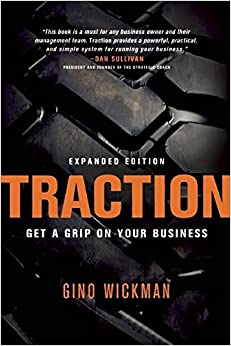
Traction: Get a Grip on Your Business
Author: Gino Wickman
Aalap Shah, Founder, 1o8
The book has made a powerful impact on my career and in my newest venture (1o8 — I’ve started and sold a few companies prior to this one) as I had always wanted to have an OS, or operating system, to follow for myself and my employees.
Centered on Wickman’s Entrepreneurial Operating System (EOS), Traction provides a framework to implement accountability, growth and leadership within the organization in a systematic fashion that allows a business to thrive and create predictability within operations and delivery. More importantly, I feel that it provides a guidepost to help everyone in the business feel like they’re working together toward a common goal vs. silos within the organization.
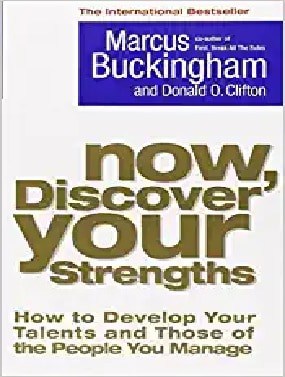
Now discover your strengths
Author: Marcus Buckingham
Nancy Medoff, AthenaWise
There is one book and only one book which has significantly impacted my career and how I live my life. Marcus Buckingham’s Now Discover YourStrengths has changed my life and I’ve used the main premise of the book throughout my thirty-year career. In fact, I’ve enjoyed so much success due to this one philosophy that I weave this into my keynotes, training, and career coaching. I advise my college students to adopt this philosophy and have discussed the strengths finder as recently as two days ago, as I was coaching a professional woman in the midst of a career change.
The premise is simple – rather than spend your time trying to make your weaknesses into strengths, spend your time focusing on your strengths, and really leveraging and honing in on this natural ability which you possess.
Through the Strengths Finder exercise, you identify your unique talent DNA and as such, where you excel. Where you excel is likely where you have or will always excel, so leverage this. Hone this skill/talent and use this to your advantage.
This advice and this exercise have saved me countless hours on trying to be something I am not. I have increased my confidence by owning and celebrating what I am naturally good at – and in doing so has enabled me to step into my strengths and be truly authentic in everything that I do.
A game changer for sure.
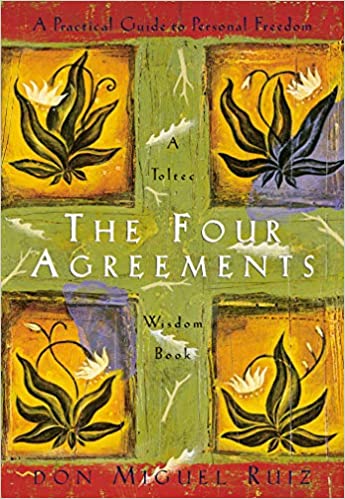
The Four Agreements
Author: Don Miguel Ruiz
Michelle Shuster, Director of Operations, Qnity Inc.
Be impeccable with your word.
Don’t take anything personally.
Don’t make assumptions.
Always do your best.
It’s a powerful code of conduct to live by and an incredible set of values to do business and manage your team by. Strong leaders make their teams and their customers feel safe and build trust and cooperation. These 4Agreements are an incredible way to set that foundation.
You Can’t Teach Hungry
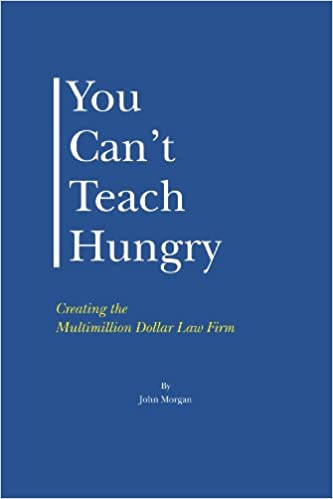
Author: John Morgan
Jordan W Peagler, Esq.Owner, Partner, MKP Law Group,
John Morgan is a preeminent attorney whose firm employs more than 260 lawyers and 1,500 support staff. It is an incredibly informative guide on how to start and build a successful personal injury law firm.
The topics range from how to value and pay different types of employees, to basic business practices like creating a budget, advertising, and holding weekly staff meetings to ensure cases are being properly worked-up.
Like many attorneys, I did not go to business school or have a business degree so opening a law firm was entirely uncharted waters. This book outlines the structures that need to be put in place to make sure you are maximizing case value by providing practical information that can be employed by any lawyer.
In addition to macro-level information like budgets, advertising and payroll, it also talks about managerial styles and how to make sure you are getting the most out of your employees. In general, it provides a roadmap on how to build a sustainable and successful law practice through the lessons and insights Mr. Morgan has learned throughout his legal career.
The book also posits critical questions about what type of boss and lawyer you are and motivated me to start and grow my own firm. “You Can’t TeachHungry” taught me not to be complacent, as the legal profession is constantly evolving, and that planning for the future is everything.




